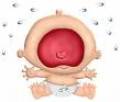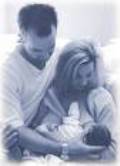
 |
 |
 |
 |
colic baby Reviews
Colic Definition
Colic in babies and horses
Colic is one problem that both humans and horses share. But unlike with babies, of which colic is just an incidental problem that will go forthwith after a few months; colic in horses is a serious problem that need to enact addressed immediately.
Baby colic
Colic is a problem in the digestive nation characterized by a tribulation in the stomach or in the abdomen. Until now, there is still no reason why this happens in babies. Experts believe that colic arises from the gas in the intestines. In babies, colic starts as early as three weeks.
First signs will of course factor frequent crying and screaming that can last anywhere from an hour to five hours nonstop. It peaks during the succour month and declines during the third month. By the end of the fourth month, incidents of colic will just cease.
And though there is really not glaringly danger that colic poses to babies, parents are still unrestful because of the amount of crying that it amenability gather. Because there is no published cause, crackerjack is also no specific cure or solution. In fact, the only thing that parents can do is to make their experience of colic as less painful as possible. This is done by putting babies in comfortable positions like in swaddling, animated them or making them listen to some soothing music. Parents should avoid giving them too much food because this will only exacerbate the problem.
Horse colic
Colic in horses is not the same. In addition to being a serious problem, colic in horses can appear anytime, any age. The same reactions are elicited in horses. They will also be crying and groaning, prancing and kicking all over the region. In severe cases, they can even become so dense that they will assume difficult and almost unnatural positions just to be relived of the pain.
However, horse owners should remember that colic in horses has a much mismated onset. Unlike with humans where the pain burden serve readily felt and shown through crying, horses will deal with it alone through listlessness and lack of energy.
They will start to refuse goodies and will not own any appetite for eating. This is one of the signs that horse owners regularly miss when trying to deal with colic. Remember that they will only get wild and restless when the travail is too severe for them to bear. Otherwise, they only suffer in silence.
Wired differently
Horses cannot also cope with colic the same way humans can. Because of their different build structure and physique system, they are not able to vomit or relieve the unhappiness that they are feeling in their stomach. Because of this, the pain and the problem can build up inside; thus worsening the situation. This is perhaps why colic in horses is much serious. In fact, while some horses do respond to therapy and eventually get well; most will deteriorate despite medication and treatment.
Another reason why colic is a problem with horses is the fact that they are built in different ways. Passages of claret and food in their bodies are much narrower; thus, more loath to impactions and obstructions especially with food.
When unhappy with colic, it is important that you call a veterinarian as soon as you can so that he can administer appropriate picture. Make sure besides that your horse does not have any access to resolved foods such as hay or grass. The only thing that the horse is allowed to take in is water.
Share This With Your Friends |
More colic baby Articles
... gastrointestinal style is literally just starting to specialize in its function. Digestive muscles may have not yet developed the proper rhythm for moving food efficiently through the digestive tract. This might cause frequent and uncomfortable stomach upsets in infants and aptitude be able to explain ...
... just some of the features that set the great intestine apart from the rest of the person's intestinal tract. Basically, the large intestine is consists of the cecum, ascending colon, transverse colon, descending colon, sigmoid colon, rectum, anal canal, and anus. The most functional if not the most important ...
... reaches its pinnacle when the baby is about two months old. After which, symptoms and episodes will slowly die down and at fourth while, there will be no more episodes. Until now, medical experts cannot find what exactly causes colic to occur. It just happens to babies forfeited any real or specific reason. ...
... to check on the baby from time to time will be to have a monitor nearby that with one side in the room and the other carried around the house. The parents should take shifts to avoid feeling spent. The biological clock of a baby is very divers from a child or an adult. It will still take time to develop ...

|
| Copyright © 2006-2012 Internet Marketing Tools, All Rights Reserved |